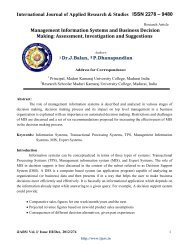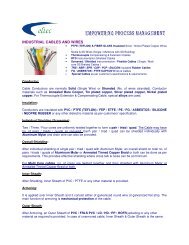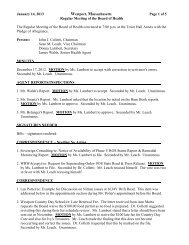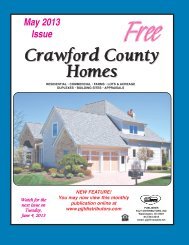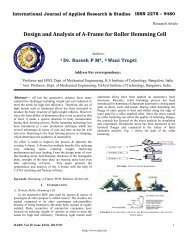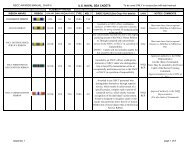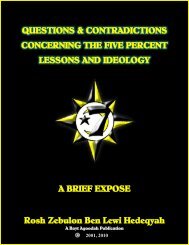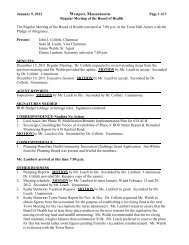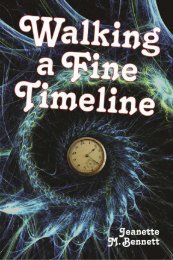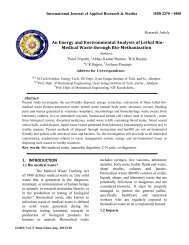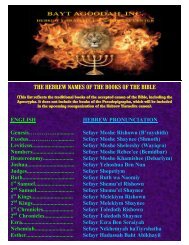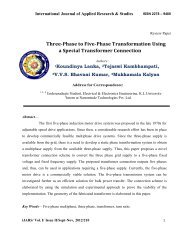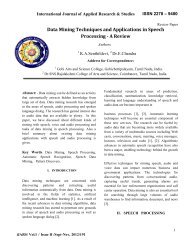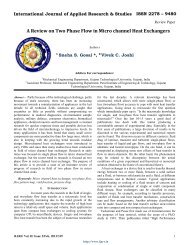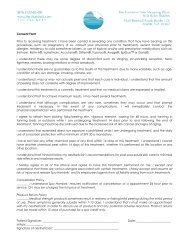Leisurely Motorcycle Riding - Hgsitebuilder.com hgsitebuilder
Leisurely Motorcycle Riding - Hgsitebuilder.com hgsitebuilder
Leisurely Motorcycle Riding - Hgsitebuilder.com hgsitebuilder
Create successful ePaper yourself
Turn your PDF publications into a flip-book with our unique Google optimized e-Paper software.
<strong>Leisurely</strong> <strong>Motorcycle</strong> <strong>Riding</strong>: A Phenomenological study of the psychology of leisurely - 16 –<br />
motorcycle riding.<br />
negative effect on thinking… feeling… and behavior long after the event is in the past" (p. 113).<br />
Furthermore, future investigation may also result in more specific recoding of the presented themes in a<br />
manner consistent with Griffin‟s (2005) investigation of leisure and trauma defined earlier. However,<br />
leisure may also be a source for repressing and projecting negative feelings, destructive behavior, and<br />
thoughts of worthlessness through seemingly healthy activity (Arai, Griffin, Miatello, & Greig, 2008). This<br />
study provides a framework to investigate further understanding of the potential duality – positive and<br />
negative affective behavior – of riding. Such information may reveal valuable connections for<br />
understanding and using riding as positive tool for clients' requiring therapy to over<strong>com</strong>e negative-affective<br />
or traumatic experiences.<br />
Another improvement would be to interview female riders. While women were not intentionally<br />
excluded from this experience, an opportunity exists to <strong>com</strong>pare results. This would provide a multilayered<br />
understanding of the experience <strong>com</strong>mon to both sexes. Such information may result in an<br />
alteration of core themes based on a more holistic understanding of the experience. However, it also leads<br />
to rather interesting connections between the existing core qualities and psychology.<br />
An interesting phenomenon was captured by the riders‟ use of gender-based <strong>com</strong>ments. The<br />
reference to a mechanized machine frequently occurred in favor of feminine diction. This supports both<br />
core qualities: connection and union with mechanized machine. However, it was not raised to a level of<br />
saturation. Moreover, with the absence of female riders being interviewed and the naturalistic interview<br />
approach, this occurrence is best addressed for future improvement and research in the following<br />
paragraphs as several considerations are currently of great interest in psychological research.<br />
From a psychological perspective these statements could relate to projection of a sexual/organic<br />
quality to a non-living being. Freudian theory could be explored in relationship to the relevance of the<br />
sexual element of the pleasure principle. While Jungian scholars might seek to investigate the intrinsic<br />
earthly connection individual‟s unconscious male and female personality influences; in this case with male<br />
riders, the great mother.<br />
In other words, Jungian theory might suggest the riders possess a feminine side. As we create a<br />
bond with the machine through an emotional experience (aptly noted by the participants) the masculineside<br />
would project the feminine out from within and onto the newly established connection/union.



